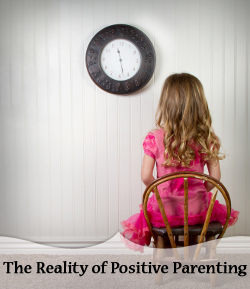My sister, who is not yet a mom, recently shared this quote with me:
“When a child hits a child, we call it aggression. When a child hits an adult, we call it hostility. When an adult hits an adult, we call it assault. When an adult hits a child, we call it discipline.” ― Haim G. Ginott
This quote means something. It speaks to the harsh reality of our society’s view on parenting. In reading recent articles and responses to them, I’ve been surprised by the great number of people who fully endorse physical ‘discipline;’ and beyond that, there are many more parents who simply resort to harsh discipline out of anger, frustration or a feeling of helplessness.
If our children are going to learn how to respect others, empathize and peacefully resolve conflicts, they must be shown how to do so starting from day one. We as parents must dig deep within ourselves to break the patterns of anger, yelling, criticizing and spanking that often come as knee jerk reactions. We must find gentle, loving ways to be authoritative and firm with our children, relying on teamwork, love and mutual respect to help shape them into happy, healthy, functioning members of society.
For me, discipline has by far been the hardest aspect of being a mom. Positive parenting is a challenge for me. I have never questioned the rightfulness, effectiveness or justness of this approach. However, I’m naturally impatient, a bit of a control freak, emotionally sensitive and sarcastic; traits that don’t easily lend themselves to a calm parenting style. Conversely, I’m nurturing, sensitive and empathetic, which balances me. But when your personality gets in the way of the type of parent you want to be – like it sometimes does for me – guilt, doubt and inconsistency creep in.
I have two very active, energetic and strong-willed young boys. Their father and I have strong personalities and we are both passionate and often forceful communicators. As expected, our sons are the same way, which creates a charged home environment that can turn to chaos when stresses or emotions run high. My husband and I have always instinctually gravitated away from using force and toward a more diplomatic approach to raising our boys. But with such powerful energy in our house, it has been difficult to walk the line between being consistently authoritative but gentle, and letting our kids run the show.
The many parenting books I have read (Raising a Son, Raising your Spirited Child and Raising an Emotionally Intelligent Child are my favorites) have given our family some great tools. But I’ll be the first to say that when you are dealing with daily power struggles, children who question every bit of authority, and public unruliness, it is hard to stay cool and calm. More and more parents seem to be looking for ways to maintain parental authority while leaving behind the negative methods that leave everyone in the family feeling guilty and betrayed.
Doing the right thing for our kids can be exhausting – but the hard work pays off for the well being of the individuals, families and society as a whole. Below are a few tips that have helped my husband and I achieve the balance of being positive, empathetic parents who enforce fair, solid boundaries for our kids.
1) Love comes first: Of course kids need boundaries, but most importantly, above all things, they need love. We all love our children desperately, so this is the easy part. Making sure you put time in every day to nurture your relationship with your child will help build the security, safety and bond that he needs in order to recognize and respect your parental authority. Without a solid relationship as the foundation, your child will continue to question if you really know what’s best for him, and whether or not he should listen to your guidance.
2) Sometimes the “bad guy” is really a “good guy”: It is like a knife to the heart when one of my boys calls me a ‘bad guy’ and genuinely means it. I want to be their hero, friend, comforter and safe haven, not the bad guy. But the old adage ‘you’ll thank me later’ does sometimes ring true, and we must be consistent for our children to learn right from wrong. I have accepted that it’s OK to be the ‘bad guy’ if I’m being empathetic and if I know that by doing so, my boys are learning an important lesson that will benefit them later on in life. Plus, putting in the hard work now is what ultimately solidifies our spot as our children’s lifelong heroes. I look forward to that.
3) Find an outlet: I need outlets for venting my frustrations and for recharging my energy. Exercise, good music, time with other adults and fresh air are mine. If we’re having a tough day, I usually find that getting outside or a spontaneous dance party in the living room can instantly turn moods around – and refuel my body to make it through calmly until bedtime. I need a good long talk with my husband every night to unload anything I’ve been holding in through the day. This is sometimes hard for him after a long day of work, so when he doesn’t have the energy, I call my mom or sister. It’s amazing how just talking can be such good release. Figure out how you alleviate your tensions and how you regain energy and make those activities a top priority every day.
4) Celebrate small successes: There have been countless chaotic mornings, when after I drop my son off at preschool, I begin to reflect on how we could have had a smoother start to our day. I think about all the things I nagged my oldest son about (getting up and down from the breakfast table a dozen times, not putting on his socks, refusing to let me comb his wild hair, etc.), and immediately regret how I forgot to applaud the good things he did that morning (fed the dogs, helped his brother find a toy, put his dishes in the sink). I realize we all could have had a happier morning if we would have focused on the positive. Most recently, our family has been working on celebrating our small successes and letting the small “failures” go with nothing more than a simple correction. The more we applaud our children’s deeds, good choices and cooperation, the more of it we’ll see.
Parenting and finding a discipline style that fits your family is a journey. I know mine still has some rugged terrain ahead, like most families do. But we’re working on it and focusing on love and empathy each day. Please share your tips too, so we can all navigate these crazy seas a little better.
Ashley Allman is a Seattle-based writer and co-founder of online natural products boutique, Ash & Alys Babes. She spends most of her time playing house with her two spirited sons, husband and two dogs, all of whom she uses for inspiration in every aspect of life. Ashley is committed to raising her children green and focuses a great deal of energy on feeding her children a healthy diet and raising them to be responsible stewards of our beautiful Earth.




“naturally impatient, a bit of a control freak, emotionally sensitive and sarcastic” Same here! Great article. :)
Great post Tiffany, you’re a great writer!
This was all Ashley Allman. I agree though that it is a great article. ;)
“Sometimes the “bad guy” is really a “good guy””
My hubby and I alternate playing this role. Kids love it but we end up fighting sometimes.
“Why are you treating them like babies?” or “Why are you so hard on them?” are the two common convos between us. Bad cop good cop are delicate roles to play.
Great article!
It is important to trade off on that role Karen, I agree. Thanks for sharing!
Terrific article !
Glad you like it!
Thanks for the comments! It’s always encouraging to know there are other moms in the same boat! :)
Your post really resonated with me. Everyone in my family is also very strong-willed which leads to a lot of battles between my son and me. I try so hard to be calm, gentle and kind when it comes to parenting but my natural inclination is to just lose it! Thanks for the great advice. I’m definitely going to try to focus more on the good.
The book “Positive Discipline” by Jane Nelsen really helped me with many of my parenting struggles. I learned that when I really blew it with my kids, I could demonstrate how to apologize and recover from my mistake <— now I see this is a HUGE teaching opportunity. Also the book helped me realize that I don't have to be a perfect parent to be a good parent.